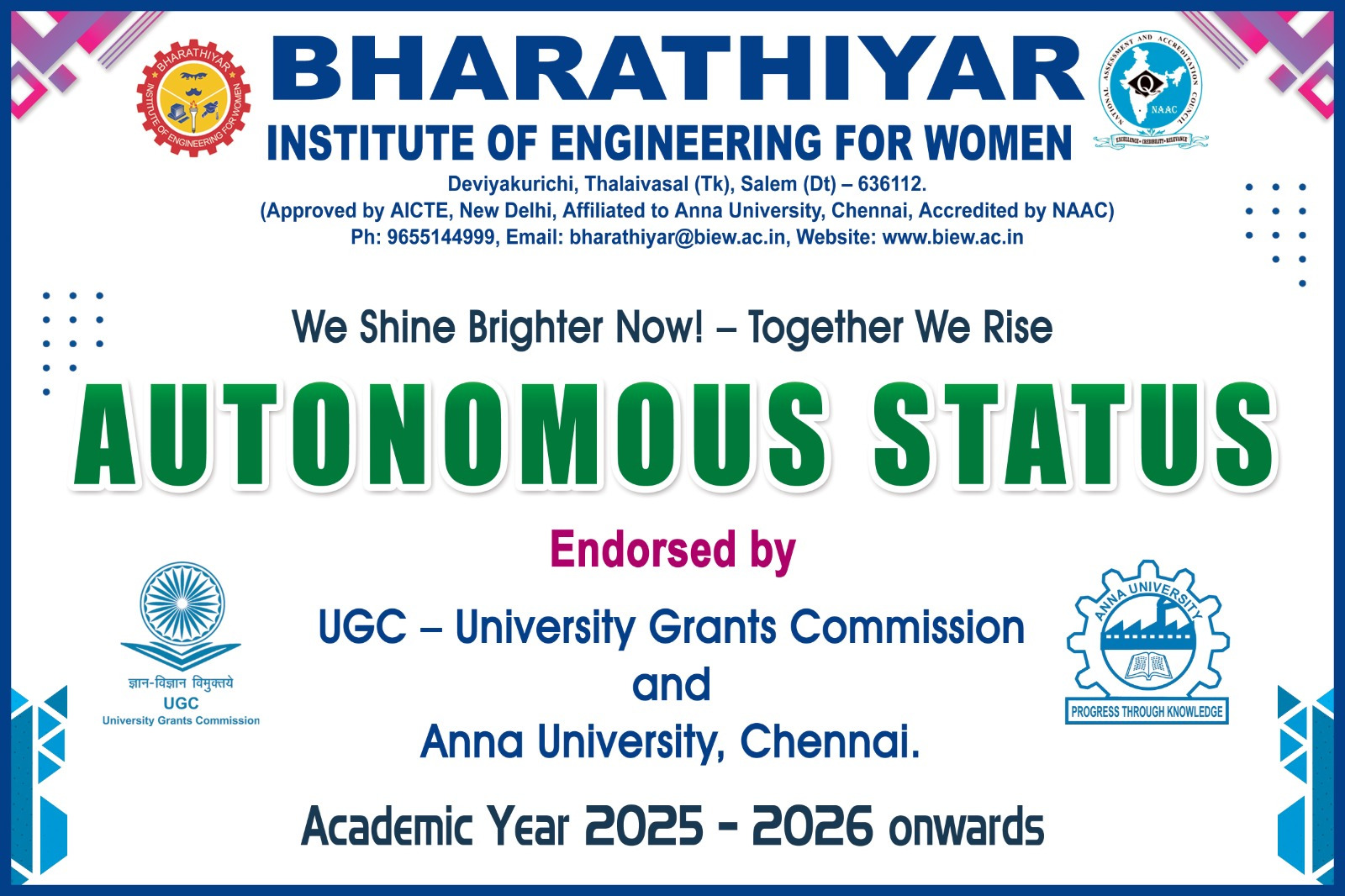ARTIFICIAL INTELLIGENCE & DATA SCIENCE
ARTIFICIAL INTELLIGENCE & DATA SCIENCE
About the department
The Department of Artificial Intelligence and Data Science was established in the year 2022 with 60 students.Making machines think and act like humans through the science of artificial intelligence is the biggest technological advance this century has ever seen. Artificial intelligence is powered by data. Every aspect of human life will be dominated by AI powered by data, and the possibilities for its use will be endless. Among the examples already in existence are autonomous vehicles, virtual assistants like Siri and Alexa, and domestic assistants like robot maids.Young engineers who have a knack for data and visualisation are finding that the field of AI & DS is the most promising.
Making machines think and act like humans through the science of artificial intelligence is the biggest technological advance this century has ever seen. Artificial intelligence is powered by data. Every aspect of human life will be dominated by AI powered by data, and the possibilities for its use will be endless. Among the examples already in existence are autonomous vehicles, virtual assistants like Siri and Alexa, and domestic assistants like robot maids.Young engineers who have a knack for data and visualisation are finding that the field of AI & DS is the most promising
Vision
-
To create specialized software professionals who will significantly advance the fields of data science and artificial intelligence.
Mission
-
Providing excellent infrastructure and enabling faculty and students with cutting-edge trends and technologies are just a few of the ways.
-
Students who receive high-quality education are also instilled with moral and ethical principles.
-
Empowering students to develop their research skills for a range of societal issues through innovative projects collaborating with different industries to prepare students for the workforce.
Program Educational Objectives (PEOs)
PEO 1 -Ability to understand, apply, analyze, design models and applications for all the real-world scenarios related to AI and DS.
PEO 2-Practice engineering in a broader aspect and exhibit professional leadership qualities in their field.
PEO 3-Enhancing technological competence to withstand the challenges in the volatile IT industry.
PEO 4-To be committed in Life -long research and Learning activities that supports societal development.
Program Specific Outcomes (PSOs)
PSO1: Practically apply the knowledge acquired to various multi- disciplinary problems
PSO2:Expertise in the latest software tools and technologies related to Artificial intelligence and Machine learning.
PSO3:Conduct various research activities and contribute the findings of the relevant domain.
PSO4:Enrich their abilities to qualify for Employment in the field of AI and DS.
PROGRAM OUTCOMES (POS):
On successful completion of the program
- PO1. Engineering knowledge: Apply the knowledge of mathematics, science, engineering fundamentals, and an engineering specialization to the solution of complex engineering problems
- PO2. Problem analysis: Identify, formulate, review research literature, and analyze complex engineering problems reaching substantiated conclusions using first principles of mathematics, natural sciences, and engineering sciences
- PO3. Design/development of solutions : Design solutions for complex engineering problems and design system components or processes that meet the specified needs with appropriate consideration for the public health and safety, and the cultural, societal, and environmental considerations
- PO4. Conduct investigations of complex problems: Use research-based knowledge and research methods including design of experiments, analysis and interpretation of data, and synthesis of the information to provide valid conclusions
- PO5. Modern tool usage: Create, select, and apply appropriate techniques, resources, and modern engineering and IT tools including prediction and modeling to complex engineering activities with an understanding of the limitations
- PO6. The engineer and society: Apply reasoning informed by the contextual knowledge to assess societal, health, safety, legal and cultural issues and the consequent responsibilities relevant to the professional engineering practice
- PO7. Environment and sustainability: Understand the impact of the professional engineering solutions in societal and environmental contexts, and demonstrate the knowledge of, and need for sustainable development
- PO8. Ethics: Apply ethical principles and commit to professional ethics and responsibilities and norms of the engineering practice
- PO9. Individual and team work: Function effectively as an individual, and as a member or leader in diverse teams, and in multidisciplinary settings
- PO10. Communication: Communicate effectively on complex engineering activities with the engineering community and with society at large, such as, being able to comprehend and write effective reports and design documentation, make effective presentations, and give and receive clear instructions
- PO11. Project management and finance: Demonstrate knowledge and understanding of the engineering and management principles and apply these to one’s own work, as a member and leader in a team, to manage projects and in multidisciplinary environments
- PO12. Life-long learning: Recognize the need for, and have the preparation and ability to engage in independent and life-long learning in the broadest context of technological change.



 Feedback
Feedback
